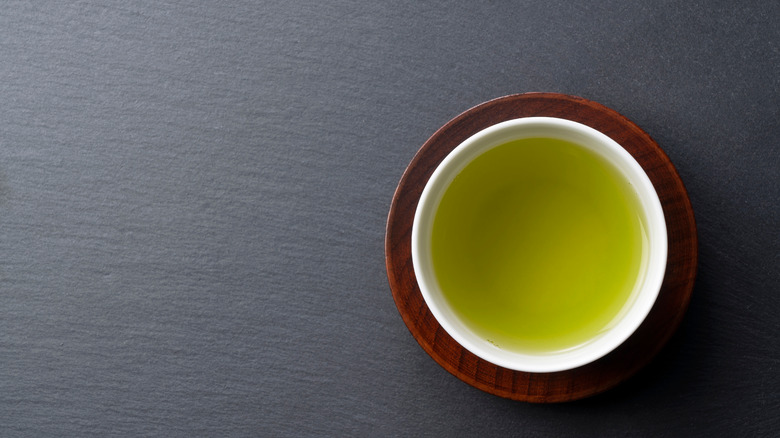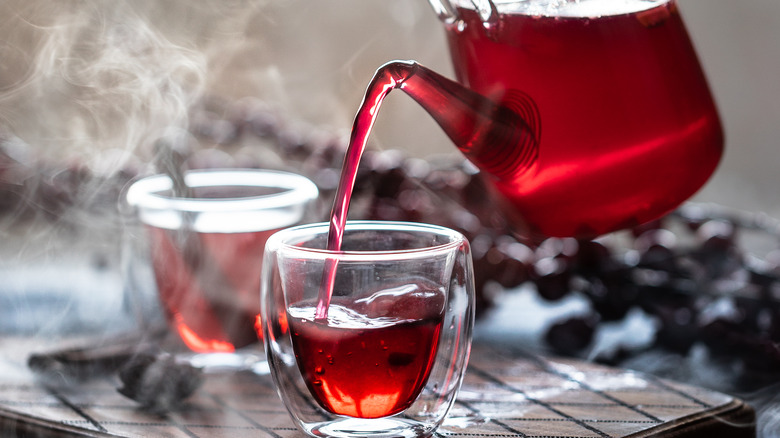When You Drink Too Much Tea, This Is What Happens
There is no denying that tea has a lot to offer. Aside from the warm comfort of a tea mug after a bad day, the right tea can soothe a troubled stomach or ease a sore throat. But there is too much of a good thing, even with tea.
It's hard to imagine that tea can have negative side effects outside of the ways it can interact with medication. The National Center for Complementary and Integrative Health explains that goldenseal and concentrated green tea can both have aggressive interactions with medication, which is why patients are urged to tell their doctors about any herbal supplements or treatments they use.
But there are side effects to tea that you are likely to experience long before your morning matcha causes issues with your medication. The most obvious of these is the dry mouth and serious urge to "go" that can hit you after a couple of cups. These side effects creep up because tea is a diuretic. The Mayo Clinic explains that diuretics leave you dehydrated and send you running for the restroom because they force your body to dump stored sodium into your urine. Your body responds by pulling water from your blood, leaving you with a dry mouth and a full bladder.
Tea can have slightly more serious side effects, however. Too much tea can affect your stomach, your sense of balance, and even your sleep. And all of these effects come down to one specific ingredient: caffeine
Caffeine buzzkill
Unless it's an herbal blend, tea contains caffeine. The Center for Science in the Public Interest states that a bag of Lipton's black tea contains about 55 mg of caffeine after brewing, while a brewed bag of Celestial Seasoning Energy Tea contains about 95 mg. A 12 oz cup of Folgers, by comparison, has 120 to 160 mg. This means it only takes two to three cups of tea to achieve the same caffeine buzz you would get from a cup of drip coffee.
It also means tea can cause the same effects you'd get from a coffee overload. Eat This, Not That states that too much caffeine can lead to digestive issues, dizziness, and headaches. Another side effect is heartburn, as gastroenterologist Kevin Ghassemi, M.D., explained to NPR's The Salt in 2012. Caffeine relaxes the muscles that keep stomach acid from going back up into the throat, Dr. Ghassemi said, and increases the risk of heartburn.
Caffeine can also ruin your sleep. And while the point of caffeine for most people is to wake them up, this can be a problem when you're trying to soothe yourself with a cup of tea before bed. A 2018 study published in Risk Management and Healthcare Policy, found that 600 mg of caffeine consumed six hours or less before bed could seriously damage a person's ability to rest.
Tea can be the perfect way to end a long day. And it can help settle an upset stomach or ease a headache. You just have to make sure you're choosing the right kind of tea. And, of course, keeping an eye on your caffeine levels.


